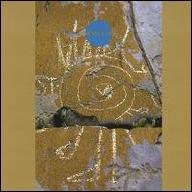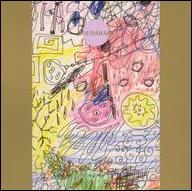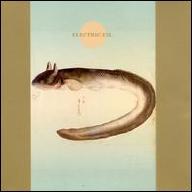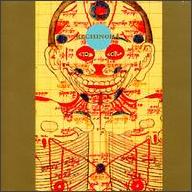While this period heralded a greater emphasis on music in his activities, the vocalist also continued working in the theater. In 1987, there was an important collaboration with the Spanish playwright F. Arrabal. Makigami acted in a production of Daitenrei or Le Grand Ceremonial, directed by Arrabel himself. In the same year he also performed in Kafka, a so-called "chamber opera" by composer Takahashi Yuji. The interest in both music and theater could naturally lead to ballet, and in the case of Makigami, this was also the year of his joining forces with former Royal Ballet director Nicholas Dickson to create the ballet group with the almost mocking name of Tutuland Academy. By the end of the 80's, a new series of activity with musicians from the international avant-garde scene had begun, including an appearance with live computer artist Carl Stone in Los Angeles. Hikashu was of course continuing its activities, which included a decision that would make the group the curse of proof readers internationally, including five years in a row of citations on the infamous proofreading "hit list." Hikashu changed its name to Hikasu, and the only people in the music business who were thrilled about it were the notoriously lazy bar employees who change the lettering on marquees. Makigami charged ahead with high-powered vocal experimentation, performing with David Moss in New York City, then surprising his audience by joining Umezu Kazutoki's klezmer band Betzuni Nanmo Klezmer as lead singer, making him about the closest thing to a Japanese cantor that has ever existed.
In the ‘90s, he performed with Derek Bailey, Ikue Mori, Samm Bennett, Fred Frith, Otomo Yoshihide, Senba Kiyohiko, and Yokota Yoshimi. He produced a debut album for the Mongolian female vocalist Solongo in 1994 and continued special tours with Hikasu. There was a significant avant-garde theater collaboration with New York's brilliant Richard Foreman, resulting in Makigami directing Foreman's Tokyo production of The Mind King. In 1997, theater activity included performances in two Yuji Takahashi plays, Kisyokyo and Nemonogatari, and in the following year, he wrote and directed the Japanese production Xomyc. Musical collaborations as the ‘90s drew to a close included tours with the fine cellist Erik Friedlander, accordionist Ted Reichman, and trumpeter Frank London. In 2000 he began another project with Foreman, and presented a series of concerts in New Zealand. ~ Eugene Chadbourne, Rovi















